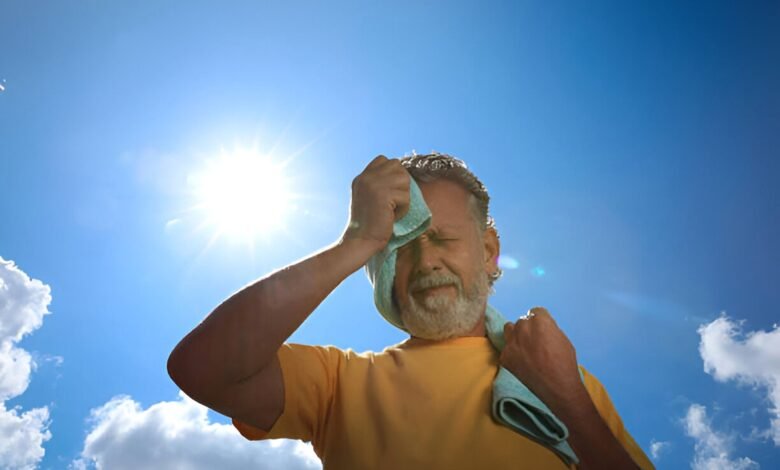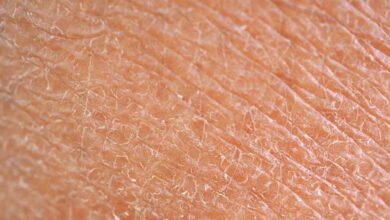Dehydration Headache: Causes, Symptoms, and Prevention Tips
A dehydration headache arises when you do not drink enough water, which causes your body to lack the fluids it requires to function properly.

A dehydration headache arises when you do not drink enough water, which causes your body to lack the fluids it requires to function properly.
Dehydration headaches are more prevalent than you might believe, and they often appear during hot weather or after a strong workout session. Staying dehydrated is the most effective approach to avoid a dehydration headache while also lowering the risk of significant complications such as heat exhaustion or damage to the kidneys.
Types of Dehydration Headaches
There are two types of headaches associated with dehydration. The first is a primary headache, which arises because you don’t have enough water in your body. The second type is a secondary headache, which occurs when dehydration leads to your other underlying issues, perhaps causing a headache to develop.
Water Loss Headache
Water loss headaches occur when your body loses more fluids than it absorbs. This headache is typical during strenuous physical activity or when you are ill. However, you may lose water in your body due to the following reasons:
- Vomiting
- Diarrhoea
- Taking diuretic medications
- Excessive sweating
- Using laxatives
- Fever
Inadequate Fluid Intake Headaches
Inadequate fluid intake headaches occur when you do not drink enough water on a daily basis, which can cause dehydration. Several things can influence your hydration patterns, such as:
- Busy lifestyle
- Lack of access to clean drinking water
- Exercise too much
- Feeling too sick to eat or drink
- Forgetting
- Nausea
- Simply not feeling thirsty
Symptoms of Dehydration Headaches
The most typical symptom of a dehydration headache is, obviously, a headache. The symptoms that accompany a headache, however, are determined by your level of dehydration.
If you are light to moderately dehydrated, you may have the following symptoms:
- Excessive thirst
- Sticky or dry mouth
- Not peeing as often as you would
- Darker yellow urine colour
- Dry skin
- Muscle cramps
Dehydration headache symptoms can develop when you are very dehydrated. This may result in symptoms such as:
- Not urinating at all
- Shrivelled or dry skin
- Feeling irritable or confused.
- Dizziness
- A rapid heartbeat
- Fast breathing
- Sunken eyes
- Extreme fatigue
Fortunately, drinking plenty of water and staying hydrated can help prevent and alleviate these symptoms. However, severe dehydration can indicate a medical emergency. If you or a loved one are severely dehydrated, you should contact a doctor as soon as possible to avoid problems and receive the necessary treatment.
What Causes Dehydration Headache?
Dehydration can occur for a variety of reasons, including not drinking enough water, excessive sweating, vomiting, or diarrhoea. When your body is dehydrated, it does not have enough water to function normally.
Lack of fluid might cause the veins in your brain’s covering (known as the dura mater) to stretch. The brain, blood, and spinal fluid all need to be balanced within the skull. If there isn’t enough water, this balance is disrupted, which can contribute to headache symptoms. However, further research is still required to understand the precise process that generates this imbalance.
According to multiple studies, those who are dehydrated experience more acute pain. This is because dehydration alters how your nerves and brain react to pain signals. So, even if you have a headache from something else, like an underlying migraine, being dehydrated may make it painful even more.
Diagnosis
If you get constant dehydration headaches, it may be good to contact a healthcare provider for a proper diagnosis and to check that your symptoms are not indicative of something more serious. During your session, your healthcare professional will enquire about your hydration habits and symptoms. They will also want to rule out other possible causes of headaches.
To find out more about your health, your physician might also order the following diagnostic tests in addition to getting your medical history:
- Blood test: check electrolyte levels and kidney function
- Urinalysis (urine test): examines the concentration of urine to determine dehydration
- Check vital signs: analyse heart rate and blood pressure to look for any abnormalities.
By performing these tests, medical professionals can rule out other illnesses and determine that dehydration is the source of the headache.
Treatment
Maintaining adequate hydration is the main objective of treating dehydration headaches. Your healthcare professional will also recommend treatment alternatives if fluid loss is being caused by an underlying health problem. Depending on how severe your symptoms are, your provider may suggest one or more of the following treatments and cures to stay hydrated:
- Hydrate well, especially before, during, and after physical activity.
- using an intravenous (IV) drip to administer fluids
- Taking drugs that prevent vomiting and diarrhoea
- Steer clear of caffeine and alcohol, as they might cause headaches.
- If taking water isn’t helping, try over-the-counter pain relievers.
- enough to ease headaches
It’s important to note that your doctor might give you fluid replacements more slowly if you have kidney or heart failure to avoid further complications from your underlying diseases.
Tips For Preventing Dehydration Headaches in Future
While headaches are frequent and can occasionally occur on their own, there are a few things you can do to avoid getting a dehydration headache. Think about the following tactics:
- To stay hydrated, routinely consume water.
- Consume foods high in water, such as vegetables and fruits like celery and cucumber.
- If it’s hot outside, choose sports drinks that contain electrolytes for an intense workout.
- Carry a water bottle with you when you work out or are in a sunny area.
- Caffeine-containing beverages should be avoided as they increase fluid loss and act as diuretics (water pills).
The Bottom Line
Dehydration headaches occur when you are dehydrated, or do not drink enough water for your body to function properly. Symptoms vary based on your hydration status, but a dehydration headache typically causes darker urine, dry mouth, and muscle cramps. Fortunately, drinking water on a regular basis and having drinks on hand while exercising or outside can help relieve and avoid dehydration headaches.
